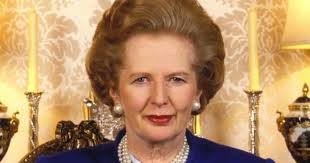January 18, 2021
LEADERSHIP PROFILE – MARGARET THATCHER
Firstly, her leadership style was characterised by an authoritarian approach, often taking on most of the decision-making responsibilities. With little or no input from other group members, she tended to dictate government policies and methods. There are several benefits to this leadership style, including the ability to quickly and efficiently make decisions without a laborious democratic process that may hold up results. This was particularly effective in high-pressure environments, where hesitation or procrastination could be damaging or even dangerous. However, the disadvantages to her included disgruntlement among colleagues who cane to resent that they have no decision-making input, as well as the limitations it can have on new idea generation.
Secondly, Thatcher’s determination was ultimately what enabled her to set goals and see them through, these included reducing the influence of trade unions and winning the Falklands war. Under the previous Labour government, led by James Callaghan, the UK had experienced severe and ongoing trade union strikes when public sector workers demanded larger pay rises. Thatcher gradually limited the influence of unions through legislation, which culminated in the 1984-85 miners’ strike after the decision was made to close down many unprofitable mines. By building up coal supplies in advance and refusing to give in to union demands, Thatcher eventually broke the resolve of the National Union of Mineworkers following a year of strikes.
Thirdly, Thatcher’s confidence in her ideals was characteristic of her prime ministerial tenure, and it caused her to run a government based on conviction politics – in other words, driven primarily on her own values. Branded Thatcherism, these policies included free market economics, privatisation, tax cuts and the promotion of home ownership. However, some political commentators have argued that this approach is eventually what led to her downfall. Following a slew of economic problems and unpopular policies, including the infamous Poll Tax, Thatcher decided to resign in 1990 after it became obvious that she had lost the support of her Cabinet and closest colleagues.
After retiring from the Commons in 1992, she was given a life peerage as Baroness Thatcher which entitled her to sit in the House of Lords. In 2013, she died of a stroke at the age of 87. Although a controversial figure in British politics, Thatcher is nonetheless viewed favourably in historical rankings of British Prime Ministers. Her tenure constituted a realignment towards neoliberal policies in the United Kingdom. Debate over the legacy attributed to Thatcherism persists into the 21st century.



